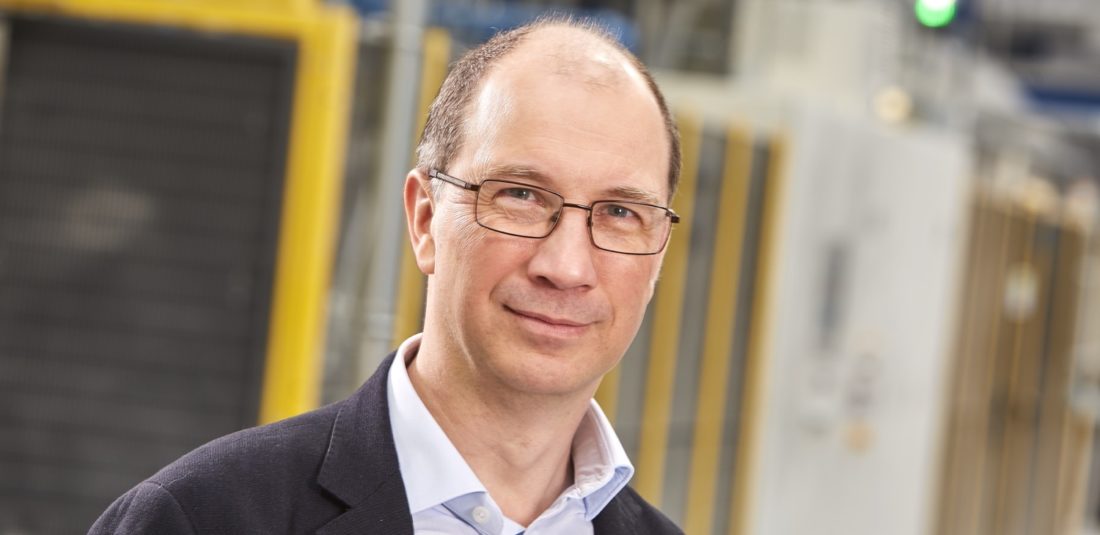“We need to do more – the time is now”, says Dr Karl Hewson
Dr Karl Hewson, Director of Technology & Development, took part in a panel discussion with professionals from JSP, Ford Otosan and Vaude Sport as part of AMI's Polymer Foam Virtual Summit and discussed the sustainability challenges facing the foam industry right now.

With plastics vilified in the media, the foam industry is coming under increasing pressure to do its bit to help the planet; however, without clear co-ordinated direction from governments, this is an incredibly challenging task. “Currently the drivers aren’t clear”, said Karl, “the authorities and the world haven’t decided what’s important yet so we’re at risk of following fashion – do we want biodegradable, do we want recyclable, or do we want recycled content?”.
The new taxes coming into play in the UK set out to improve the plastic pollution problem but, within the foam industry at least, these could be argued as muddying the waters further. Foams can be manufactured using recycled content but, when they are, they are typically heavier to achieve the required performance, so use more polymer. A foam manufactured solely from virgin polymer may contain less virgin polymer than a foam with a recycled content. Not only does this consume more resources, but some of the light weighting benefits are lost leading to increase carbon footprint, particularly in industries such as aviation and automotive.
“We all know that we want to be more sustainable, but as yet, society does not know what that means”, added Karl, “at Zotefoams we’ve chosen carbon footprint as our north star and we’re committed to improving this within our organisation and products”.
There seems to have been a shift amongst consumers, many of which now want to do more to help the planet; Karl credits this shift to the work of NGOs, such as the Ellen MacArthur Foundation which promotes the importance of a circular economy. The BPF Recycling Roadmap supports this, giving direction to more consistent levels of recycling. “As an industry we need to more to promote the environmental benefits of foam materials. My children come home from school being taught that ‘plastic is not good’, which is the wrong message. It’s people’s behaviour with plastic that’s ‘not good’.
We regularly see people purchase bottled drinks then throw the empty bottle on the floor. That plastic bottle is much lighter, which consumes less transportation energy, and uses less energy to recycle than most alternatives. Yet it is the plastic that is regarded as the problem, not the person misusing it. It is the same with foam. In many applications, such as thermal insulation, there is a positive net environmental benefit to using foam”.
Karl recognises that although it’s the responsibility of foam manufacturers to offer sustainable/environmentally friendly solutions, it’s up to customers to make a judgement about how to spend their “carbon budget”.
That being said, within the UK there aren’t many initiatives that improve foam recycling rates, making it even harder for companies to decide how to act. “The UK are well behind the curve in terms of infrastructure needed to recycle foam – and plastics in general”, said Karl, “most initiatives have been left to the industry to implement. The BPF roadmap is generally for solid plastics being recycled by mechanical methods but does include chemical recycling. For the foam sector, to take the foam structure back into a solid plastic that can be fed into an extruder is quite energy intensive, as is transportation of bulky foams. Chemical recycling feels like the direction many foam producers will pursue”.
Zotefoams remains dedicated to offering optimal solutions that benefit society and the planet. “We’ve seen a growing demand from shareholders to ensure that Zotefoams is sustainable, and this has flowed down through our management structures. Every internal control committee at Zotefoams now considers sustainability. We are focusing on reducing and reusing scrap and waste to minimise our carbon footprint.”.